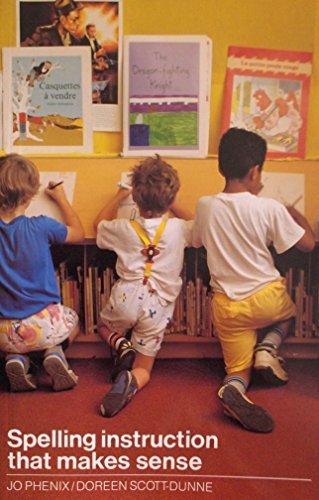Do you ever read an email and immediately notice mistakes? Are the errors distracting you from what the author is trying to say? This happens to me a lot. I’m not even looking for the errors. They just appear! This is just one of the reasons why spelling is important. It’s about clear communication! Which is why we need to teach spelling in a way that is not about memorization and tests at the end of the week. It is still relevant for our times.
Research on Spelling
There is research dating back to 1918 on formal spelling. Most support formal instruction, but there is a big BUT involved. If you are a teacher, you know that all spelling programs are not created equal. As well, there is recent research (2000) to suggest that explicit teaching of spelling doesn’t transfer over into student writing. This is a very short article (9 pages), if you are interested.
Brief History Of My Spelling Journey
Let me give you a brief history of my journey towards teaching spelling. I attended University at a time when self reflection was the norm. In some universities, it still is. Invented spelling was readily accepted in elementary classes. And again, it still is. When I arrived into my first (contract position) classroom in 1999, teaching spelling was confusing. It wasn’t addressed in my education courses, but parents expected it. I asked around and every teacher had their own way of teaching it. I eventually landed on “word families” and based the spelling lists from those words we used. But I knew that wasn’t good enough.
Jo Phenix
Back in my “first year” teacher days, I attended to a spelling workshop. The speaker was Jo Phenix. I immediately liked her because she loved spelling and she had stories regarding common words. Yes, stories! That workshop pushed me to look for a program that would involve the stories of words. You can find several of her books over at Abe Books!

You Can Teach An Old Dog New Tricks!
In 2002, I was introduced to the spelling style that was so different from what I had seen. I attended a 2-day workshop that sent me reeling for days. Spelling words a certain way now made sense. How come I hadn’t heard this before? I wasn’t taught spelling this way. I still wasn’t sure about some of the components of the program but I really needed to jump in and try it. Initially, like any new curriculum, there was a lot of stress of doing it right. Most of the students in the class knew more about the program than I did (very humbling). But with time, I got use to it. Like any program, it is not perfect, so I have added my own bits and bobs to it. But I wouldn’t teach any other way.
The Original Question
I started with talking about why spelling is important and went down a rabbit hole. Let’s go back. We live in a society that values communication. As teachers, we value communication in our classroom. We teach children to write as a form of communication. Can we articulate what we are trying to say? When we can’t read the writing due to words misspelled, it becomes a distraction.
But even more important is that spelling is a major factor in the development of literacy and reading. Good readers do not make good spellers, but research supports that good spellers make good readers! I have seen this in my own classroom with students in the primary and middle school grades.
The Discussion Will Continue
We are not finished with this discussion because, as you saw in the title, I am going to teach you to become a good speller. It’s doable! And when you are a good speller knowing the spelling rules, you can teach your students to do the same. This can begin in kindergarten with teaching phonemes. If fact, this blog post is a continuation of a previous blog post you can find here. In future posts I will share with you some of the primary rules to spelling and what you can do in your classroom right now to help your students with literacy development.
Happy Teaching!

Leave a Reply
You must be logged in to post a comment.